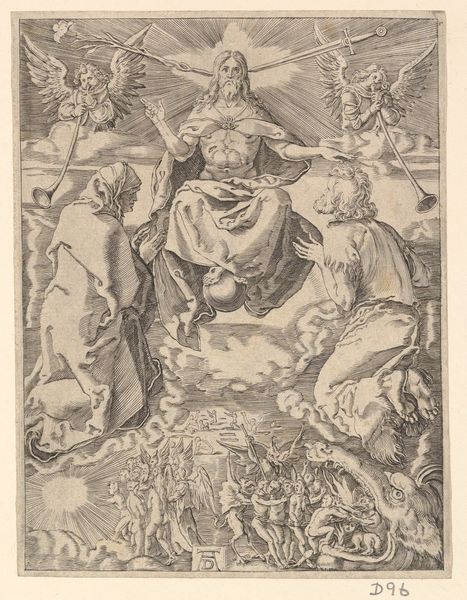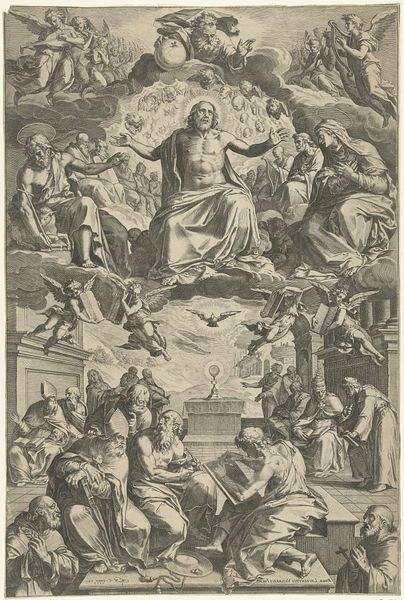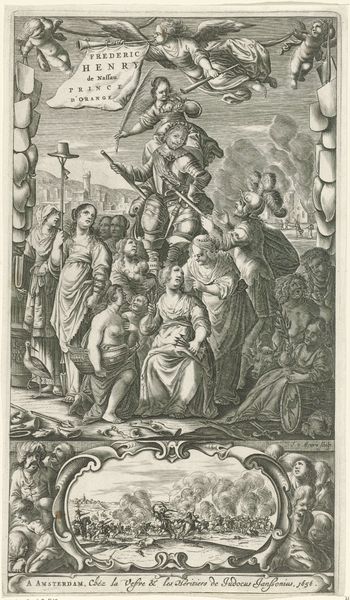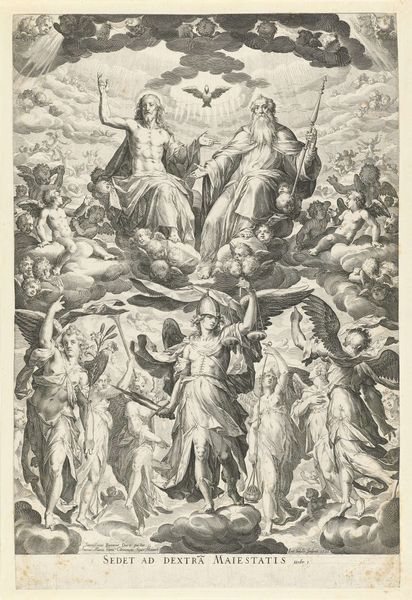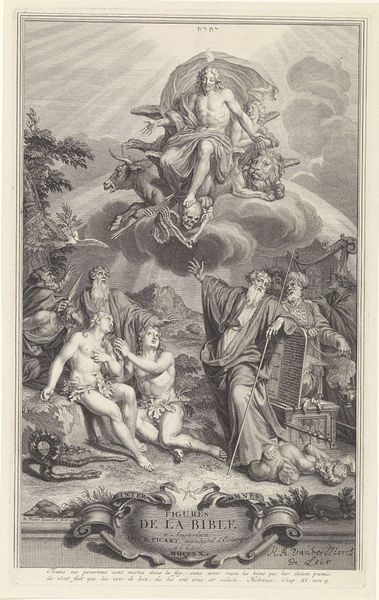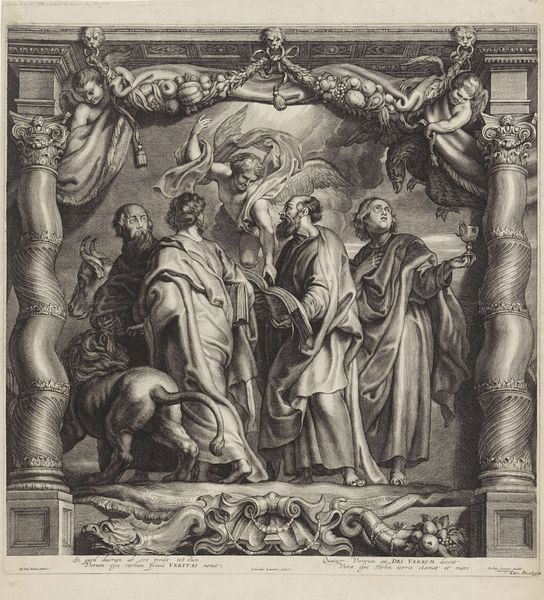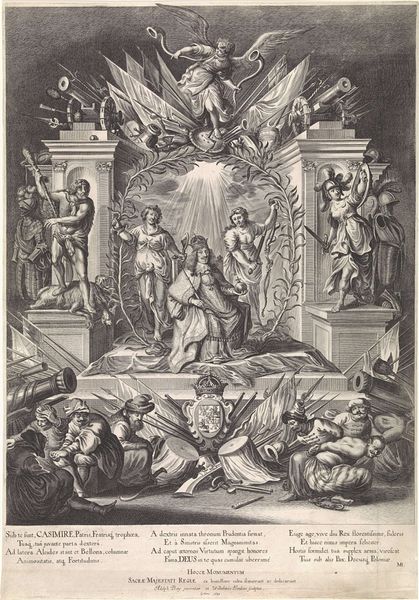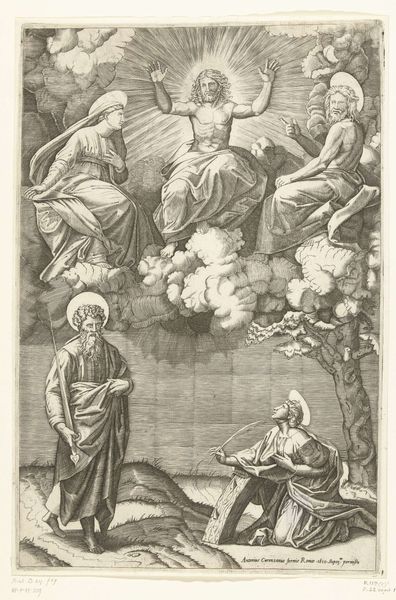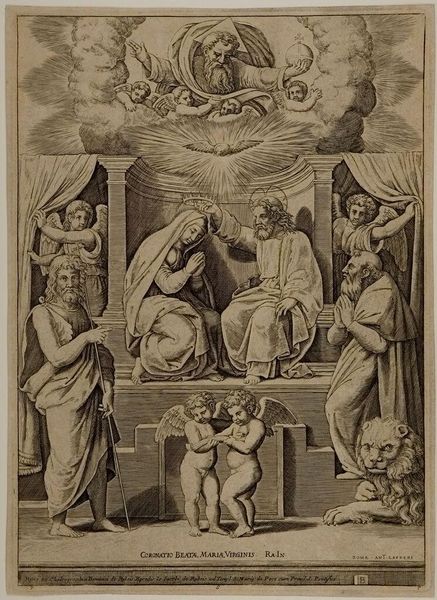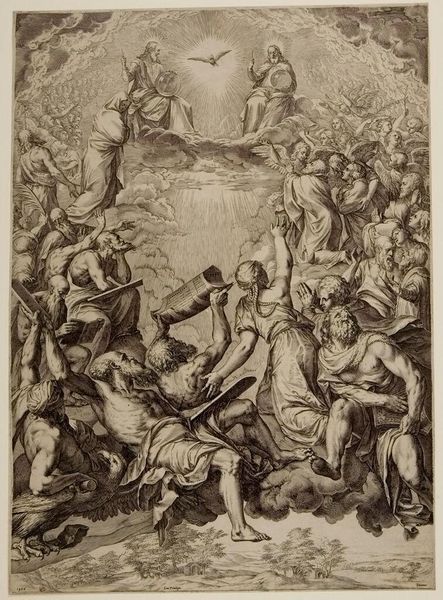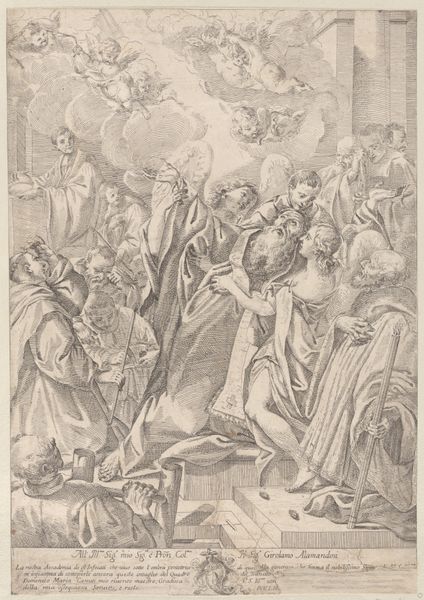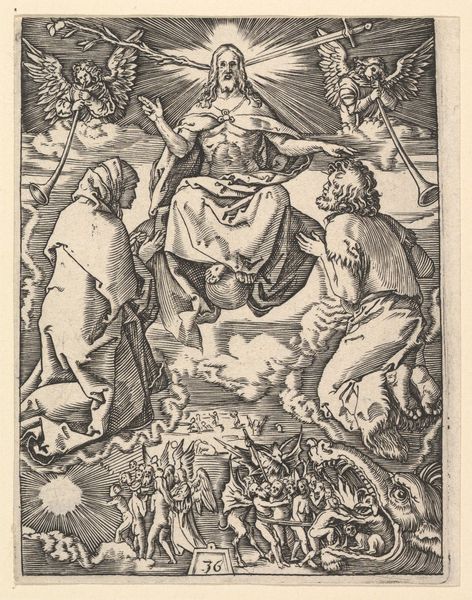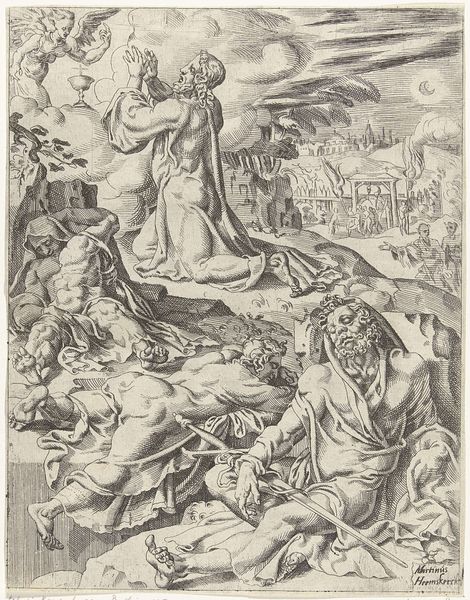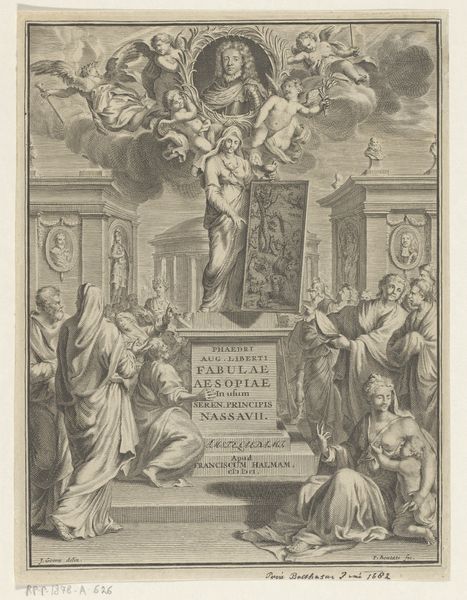
drawing, ink, pen
#
portrait
#
drawing
#
allegory
#
pen sketch
#
pencil sketch
#
ink
#
pen
#
history-painting
#
italian-renaissance
Dimensions: height 510 mm, width 344 mm
Copyright: Rijks Museum: Open Domain
Curator: Welcome. We’re looking at Agostino Carracci’s "The Cords of Saint Francis," created around 1586, a pen and ink drawing now held here at the Rijksmuseum. Editor: My first impression? Overwhelming. There's just so much happening; a layered composition, an abundance of figures, and swirling clouds. The sheer busyness creates an intriguing tension, a certain dynamic unease. Curator: Indeed. It's part of a series depicting scenes from the life of St. Francis, commissioned by the Capuchin order, a branch of the Franciscan order known for their austere living and commitment to poverty. This piece visualizes the symbolic power of St. Francis's cord, representing obedience, chastity, and poverty. Editor: And consider how Carracci uses line—the sheer volume of tightly packed, nervous hatching creates form, suggests weight. The figure of St. Francis practically levitates due to the cloud-like structures, yet also has a sense of monumental presence. It is a captivating dichotomy in the representation. Curator: That elevation connects directly to the ideals the Capuchins championed in the Counter-Reformation. The artwork portrays them as divinely sanctioned. Below, figures representing worldly power kneel, emphasizing the Franciscans' spiritual authority even over temporal leaders. It reinforced the Church’s position amid challenges from Protestantism. Editor: I see how the placement and poses invite you to look upwards through these tiers. Your eyes can trace those cords as they reach downwards. Compositionally brilliant and symbolically charged! And it is that sharp contrast—earthly authority kneeling before this vision of divine promise—that brings everything to the fore. Curator: And beyond its religious functions, prints such as these circulated broadly, cementing St. Francis' image within popular culture. It's a brilliant convergence of faith and political messaging rendered in accessible, reproducible form. Editor: Absolutely. The density is quite captivating once you unlock the language that governs its elements. Curator: It really highlights the intersection of spirituality, art, and political strategy of the era, doesn't it? Editor: Precisely. Seeing those stylistic elements converge enriches our perspective profoundly.
Comments
No comments
Be the first to comment and join the conversation on the ultimate creative platform.
